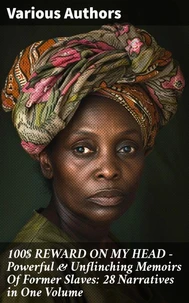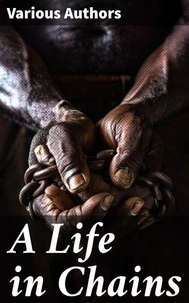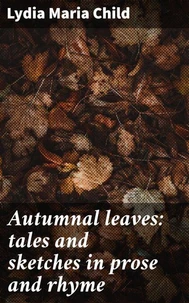Hobomok
Par :Formats :
Disponible dans votre compte client Decitre ou Furet du Nord dès validation de votre commande. Le format ePub est :
- Compatible avec une lecture sur My Vivlio (smartphone, tablette, ordinateur)
- Compatible avec une lecture sur liseuses Vivlio
- Pour les liseuses autres que Vivlio, vous devez utiliser le logiciel Adobe Digital Edition. Non compatible avec la lecture sur les liseuses Kindle, Remarkable et Sony
 , qui est-ce ?
, qui est-ce ?Notre partenaire de plateforme de lecture numérique où vous retrouverez l'ensemble de vos ebooks gratuitement
Pour en savoir plus sur nos ebooks, consultez notre aide en ligne ici
- Nombre de pages136
- FormatePub
- ISBN859-65--4702258-9
- EAN8596547022589
- Date de parution29/05/2022
- Protection num.Digital Watermarking
- Taille605 Ko
- Infos supplémentairesepub
- ÉditeurDIGICAT
Résumé
In "Hobomok, " Lydia Maria Child weaves a compelling narrative that intertwines themes of race, identity, and cultural conflict in early America. Set against the backdrop of 17th-century Massachusetts, the novel follows the story of Mary, a young Puritan woman, and her relationship with Hobomok, a Native American man. Through vivid imagery and lyrical prose, Child captures the complexities of colonial life and the often fraught encounters between indigenous peoples and European settlers.
The narrative serves as both a romantic tale and a socio-political commentary, reflecting the tensions prevalent in antebellum America and challenging the era's prevailing racial ideologies. Child's unique literary style employs both romantic and realism elements, making this novel a crucial text in American literary history. Lydia Maria Child was a prominent abolitionist, women's rights activist, and author, whose advocacy for social justice shaped her literary voice.
Born in 1802, Child's own experiences as a reformer deeply influenced her writing. "Hobomok" was groundbreaking for its time, presenting a nuanced portrayal of Native American life that defied stereotypical representations. Child sought to elevate marginalized voices, and this novel reflects her commitment to social equity and understanding between cultures. Readers seeking a profound exploration of love, identity, and the intricate dynamics of cultural exchange will find "Hobomok" to be an enlightening read.
As both an engaging story and a critical examination of early American society, Child's novel remains significantly relevant today, offering valuable insights into themes of race and belonging that continue to resonate in contemporary discourse.
The narrative serves as both a romantic tale and a socio-political commentary, reflecting the tensions prevalent in antebellum America and challenging the era's prevailing racial ideologies. Child's unique literary style employs both romantic and realism elements, making this novel a crucial text in American literary history. Lydia Maria Child was a prominent abolitionist, women's rights activist, and author, whose advocacy for social justice shaped her literary voice.
Born in 1802, Child's own experiences as a reformer deeply influenced her writing. "Hobomok" was groundbreaking for its time, presenting a nuanced portrayal of Native American life that defied stereotypical representations. Child sought to elevate marginalized voices, and this novel reflects her commitment to social equity and understanding between cultures. Readers seeking a profound exploration of love, identity, and the intricate dynamics of cultural exchange will find "Hobomok" to be an enlightening read.
As both an engaging story and a critical examination of early American society, Child's novel remains significantly relevant today, offering valuable insights into themes of race and belonging that continue to resonate in contemporary discourse.
In "Hobomok, " Lydia Maria Child weaves a compelling narrative that intertwines themes of race, identity, and cultural conflict in early America. Set against the backdrop of 17th-century Massachusetts, the novel follows the story of Mary, a young Puritan woman, and her relationship with Hobomok, a Native American man. Through vivid imagery and lyrical prose, Child captures the complexities of colonial life and the often fraught encounters between indigenous peoples and European settlers.
The narrative serves as both a romantic tale and a socio-political commentary, reflecting the tensions prevalent in antebellum America and challenging the era's prevailing racial ideologies. Child's unique literary style employs both romantic and realism elements, making this novel a crucial text in American literary history. Lydia Maria Child was a prominent abolitionist, women's rights activist, and author, whose advocacy for social justice shaped her literary voice.
Born in 1802, Child's own experiences as a reformer deeply influenced her writing. "Hobomok" was groundbreaking for its time, presenting a nuanced portrayal of Native American life that defied stereotypical representations. Child sought to elevate marginalized voices, and this novel reflects her commitment to social equity and understanding between cultures. Readers seeking a profound exploration of love, identity, and the intricate dynamics of cultural exchange will find "Hobomok" to be an enlightening read.
As both an engaging story and a critical examination of early American society, Child's novel remains significantly relevant today, offering valuable insights into themes of race and belonging that continue to resonate in contemporary discourse.
The narrative serves as both a romantic tale and a socio-political commentary, reflecting the tensions prevalent in antebellum America and challenging the era's prevailing racial ideologies. Child's unique literary style employs both romantic and realism elements, making this novel a crucial text in American literary history. Lydia Maria Child was a prominent abolitionist, women's rights activist, and author, whose advocacy for social justice shaped her literary voice.
Born in 1802, Child's own experiences as a reformer deeply influenced her writing. "Hobomok" was groundbreaking for its time, presenting a nuanced portrayal of Native American life that defied stereotypical representations. Child sought to elevate marginalized voices, and this novel reflects her commitment to social equity and understanding between cultures. Readers seeking a profound exploration of love, identity, and the intricate dynamics of cultural exchange will find "Hobomok" to be an enlightening read.
As both an engaging story and a critical examination of early American society, Child's novel remains significantly relevant today, offering valuable insights into themes of race and belonging that continue to resonate in contemporary discourse.






